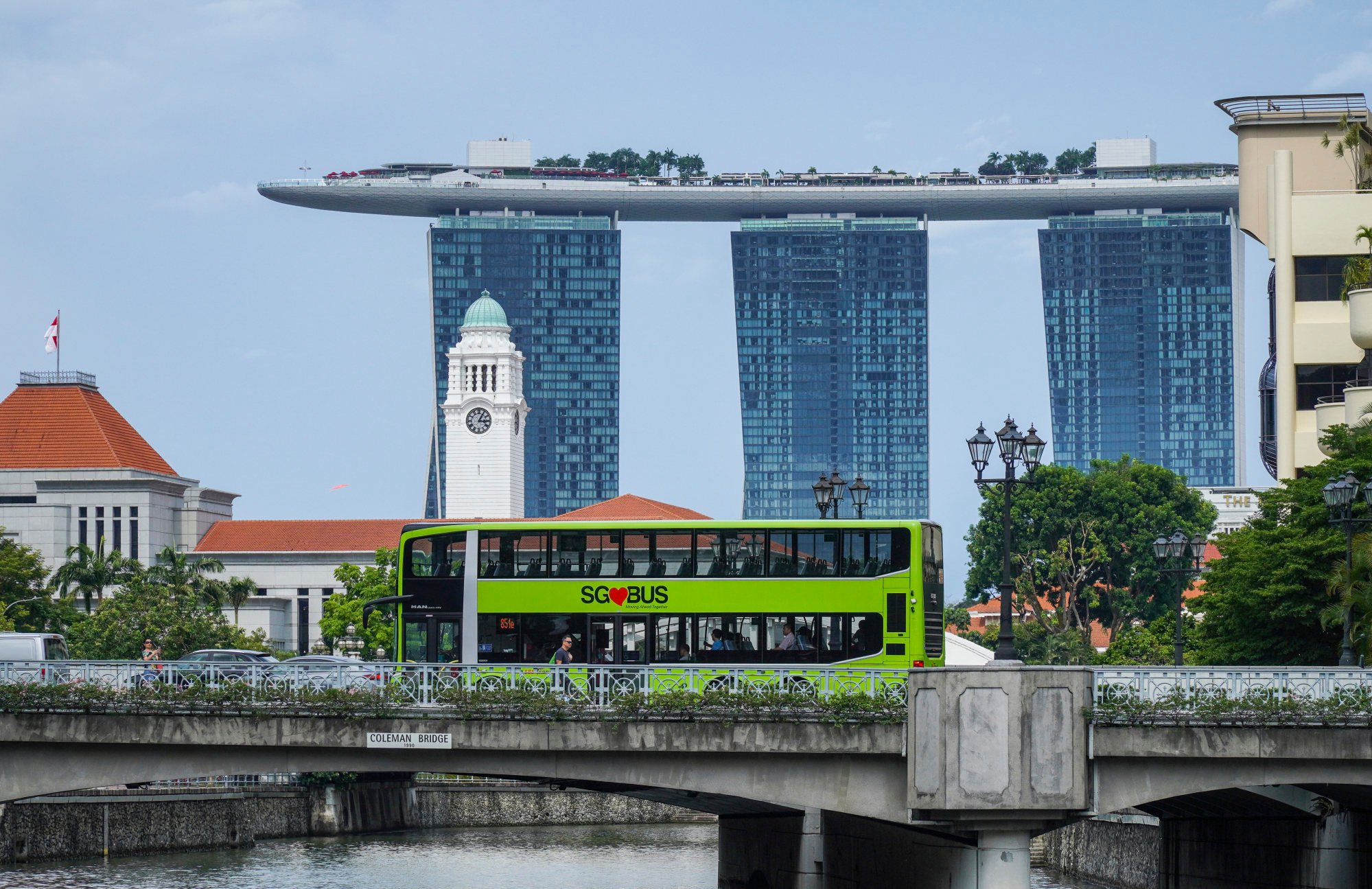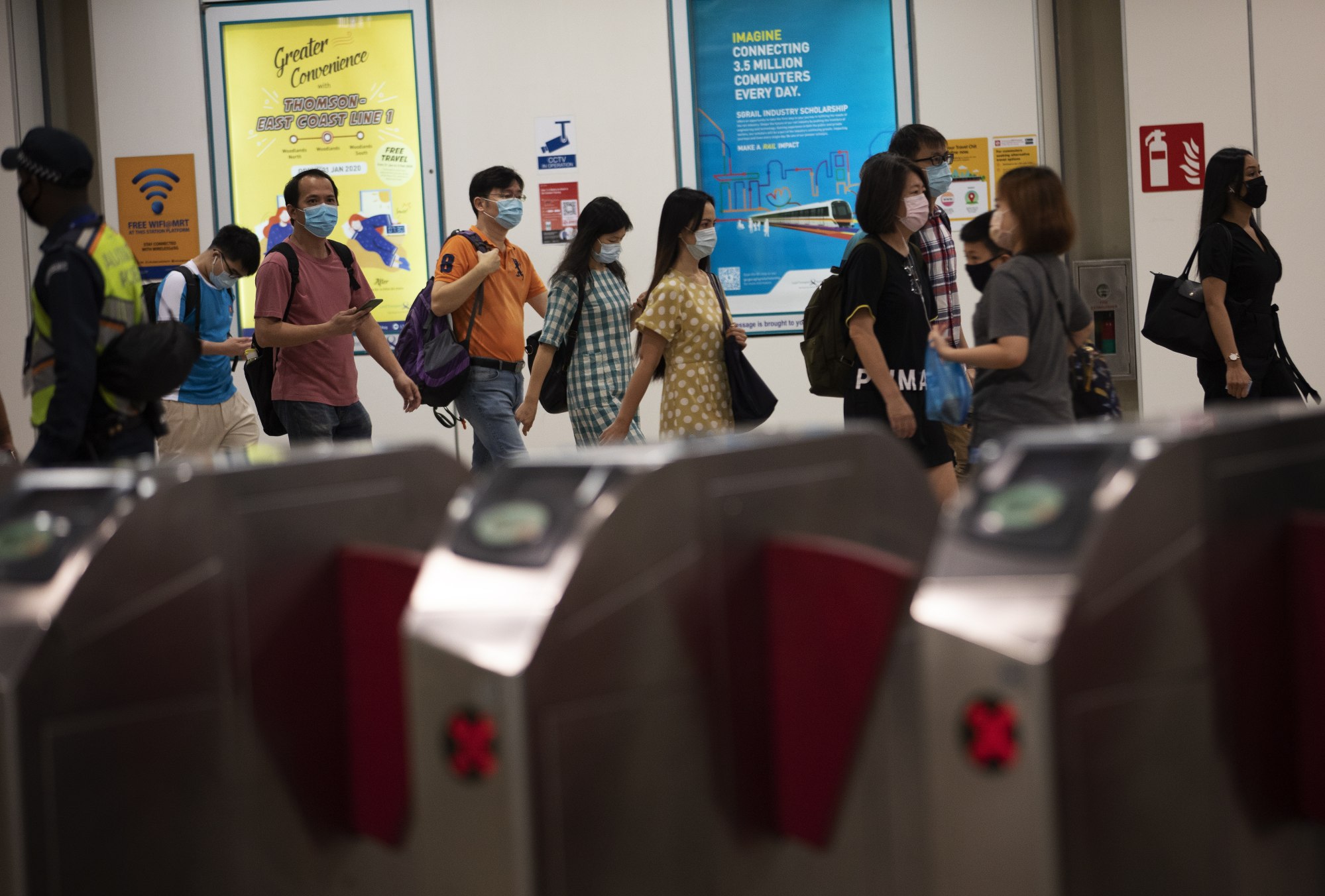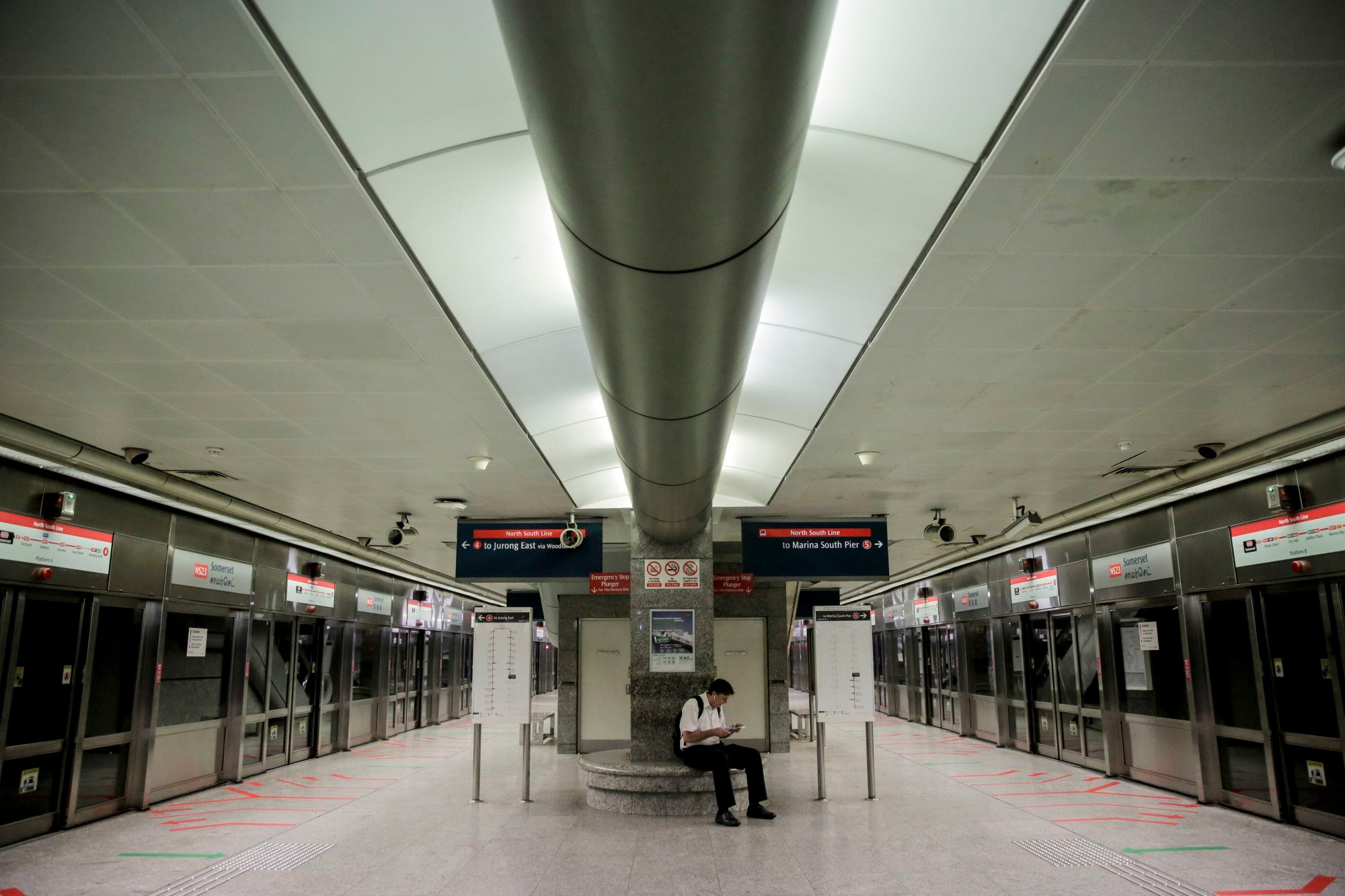Singapore’s rare U-turn on transport payment: will SimplyGo ‘policy blind spot’ become an election issue?
[ad_1]
“My grandparents do not have smartphones. They are barely literate. Many older people are. They used to be able to see the number or the flashing lights when the amount was lower. Now it’s next to impossible,” another said.
The SimplyGo system was first launched in 2019, allowing commuters to tap contactless credit and debit cards to pay for bus and train fares. Currently, commuters in Singapore have the option of using bus and train payment cards as well as contactless credit and debit cards.

The move would be a “relief” for those who were not tech-savvy or needed a fare display, said Alfred Siew, co-founder of tech website Techgundu. “Unhappiness around the move was quite strong and there was a genuine concern for some people who need to see transport fares for budgeting purposes.”
Authorities needed to dive deeper into the specific needs of commuters using these cards to ensure that no segment of society was being excluded, Neeta Lachmandas, co-founder of ConsciousService, wrote in an opinion piece in national broadsheet The Straits Times last week.
Drawing comparisons with London’s transition from the Oyster card to contactless payment, she said officials did not upend “one in favour of the other”.
“Currently, the Oyster cards can be used on public transport in London, including the London Underground, buses, trams and many local train services. And they can be topped up at any London Underground station, corner shops and information centres,” she wrote.
As Singapore debates car prices, is the COE system due for ‘significant reforms’?
As Singapore debates car prices, is the COE system due for ‘significant reforms’?
However, Singapore’s newly appointed Minister of Transport Chee Hong Tat was quick to point out that cities such as London and Hong Kong had adopted account-based ticketing (ABT) systems that – like SimplyGo – did not display fare deductions and card balances as well.
“Because ABT cards do not store fares and card balance data in the card itself, it would take a few seconds to retrieve the information from the back end system to display at the fare gates and bus card readers. This would slow down the flow of commuters and cause long queues, especially during peak hours,” he wrote in a Facebook post on Monday, adding there was currently “no technical solution to this”.
He stressed that account-based ticketing cards “have their benefits”, citing the ability to protect the value stored in users’ accounts and top up the value of cards more conveniently through an app.
The number of people in the city state using account-based cards had also increased, standing at around 40 per cent, he said.

Describing the issue as a “policy blind spot”, Walter Theseira, a transport economist, said officials had failed to take into consideration commuters who preferred to use cash cards and apps for simplicity or saw the fare display as an important function.
“The population that regards SimplyGo as a significant upgrade – commuters who prefer to use bank cards and apps for simplicity instead of maintaining cash cards – are more relatable to policymakers than those who have strong reasons for not changing to SimplyGo. There is a natural tendency to believe that if the new system works better for us, then it must be better for everyone else as well – or that they can be easily convinced to see why it’s better. This was the blind spot,” he said.
Both Hong Kong and Singapore have similar payment systems, with the dual payment options of non-transit payment cards and cash cards, he pointed out, suggesting that Hong Kong commuters would react in the same manner to the phasing out of a card-based payment system.
“What is going on here is that the legacy cash card payment system was being removed – and if you did the same in London or Hong Kong, I suppose you might see the same reaction from users who prefer to use legacy cash card payment rather than account-based bank cards.”

He said that the gripe over the lack of fare display was partly due to a mistrust of fare computation and the billing system.
“I think the problem lies in commuter reluctance to cede control over their transit budget, and distrust about the fare computation and billing system. There was basically a sense among many commuters that the authorities were not engaging them on their concerns before making the move, which probably made concerns about issues such as fare transparency more salient,” he said.
Without a strong enough incentive to download a new app and move to a new ticketing system, some commuters would not feel the need to budge, he added, suggesting incentives to entice users to switch to a new system, such as subsidies and fare caps.
Singapore’s US$100,000 car permit cost shatters middle-class ownership dreams
Singapore’s US$100,000 car permit cost shatters middle-class ownership dreams
However, the uproar over the issue was however likely to have a “shelf life”, according to Izzuddin from Solaris Strategies Singapore.
“At the moment, it’s [a hot topic] and people are talking about it but after a while, people won’t remember much or at least, not to the extent that we see right now,” he said.
“We can see a lot of memes coming out from this saga and it is rare but when it happens people will be watching how it is dealt with and if the system is robust enough, to evaluate policies.”
On whether voting behaviour in Singapore’s coming elections, expected this year, will be influenced by the saga, he said while transport issues had occupied an important space in citizens’ minds, it was unlikely that one issue alone would influence the ballot.
“While this could be brought up during the election, it will not be the deciding factor for how people will vote.”
In the 2011 general election, transport emerged as one of the hot-button issues after a series of service disruptions, along with housing and foreigner influx in the city state.
Some 67 per cent of Singapore’s compact population use buses and trains for daily commutes, according to a 2020 report by the Urban Redevelopment Authority.
[ad_2]
Source link

